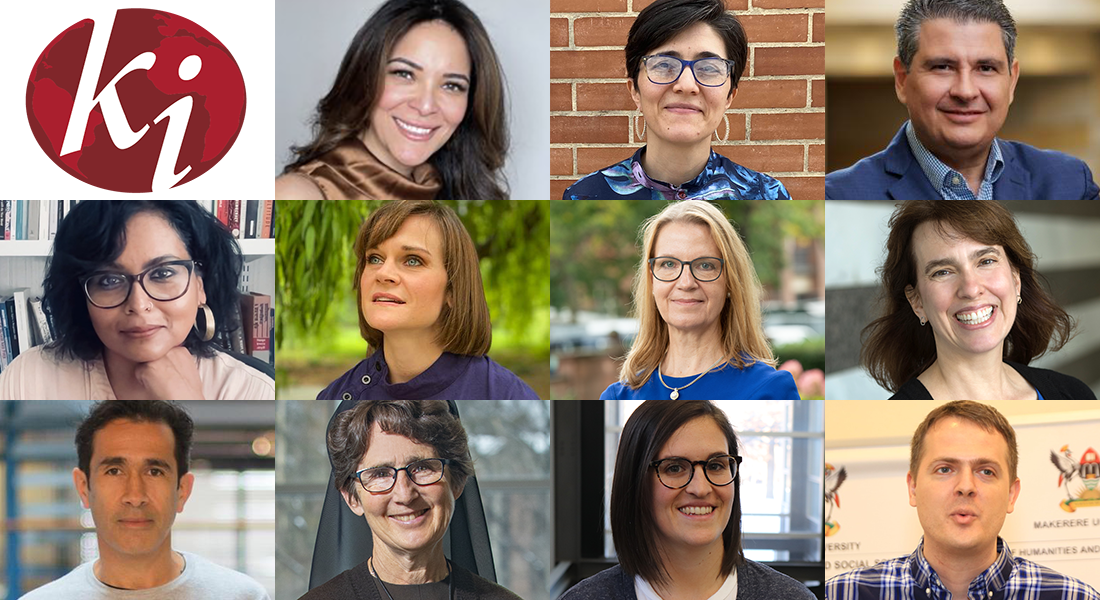
The Kellogg Institute for International Studies is proud to announce its new visiting fellows for the 2024-25 academic year and to welcome the fall and academic-year fellows to campus this week. The cohort includes a Hewlett Visiting Fellow for Public Policy continuing for a second year, as well as two new fellows who were previously affiliated with the Institute as doctoral students at the University of Notre Dame.
“Our new cohort of visiting fellows brings to Notre Dame an exceptional understanding of the great problems of our day: digital regulation, integral ecology, public security, infrastructure development,” said Kellogg Institute Director Aníbal Pérez-Liñán. “And, the geographic reach of their projects – from Bangladesh, to Egypt, Nicaragua, Uganda, and more – offer great global perspectives.”
Pérez-Liñán points out that some of the project topics covered by the new visiting fellows, such as the study of affective polarization, democratic backsliding, and democracy’s advantages for human development, advance Kellogg’s work on the University of Notre Dame’s Democracy Initiative.
The 2024-25 visiting fellows cohort includes:
-
Nermin Allam (Academic Year)
Chair and Associate Professor of Political Science
Rutgers University-Newark
“The Afterlife of Women’s Participation in the 2011 Egyptian Uprising”
-
Sandra Botero (Academic Year)
(Former Kellogg Institute PhD Fellow)
Associate Professor of Political Science
Universidad del Rosario (Bogotá, Colombia)
“Digital Regulation and Democracy in Latin America”
-
Juan Sebastián Chamorro (Academic Year)
Hewlett Visiting Fellow for Public Policy
Economist, businessman, and politician
“Violation of every right in Nicaragua, a Personal and Collective Perspective”
-
Nusrat Chowdhury (Fall Semester)
Associate Professor of Anthropology
Amherst College
“Mega-Development as Political Work in the Age of Mass Democracy: Infrastructure and Populism in Bangladesh”
-
Rebecca Hanson (Spring Semester)
Assistant Professor of Crime, Law, and Governance
University of Florida
“Conceptualizing Criminal Governance in Authoritarian Contexts”
-
Marianne Kneuer (Academic Year)
Professor of Comparative Politics
Dresden University of Technology
“What Happens After Democratic Erosion? Conceptualizing and Analyzing Erosion Reversal and Post-erosion Democratic Reconstruction”
-
Kelly McMann (Academic Year)
Lucy Adams Leffingwell Professor
Case Western Reserve University
“Democracy’s Advantages”
-
Juan Andrés Moraes (Fall Semester)
Professor of Political Science
Universidad de la República, Uruguay
“Affective Polarization and Weak Partisan Institutions in Latin America”
-
Sr. Damien Marie Savino, FSE (Fall Semester)
Dean of Science and Sustainability
Aquinas College
“Educating for Laudato Si': Engineering for Integral Ecology”
-
Rachel Schwartz (Spring Semester)
Assistant Professor of International and Area Studies
University of Oklahoma
“International Anti-Corruption Commissions, Elite Manipulation, and Democratic Backsliding in Central America”
-
Edgar Taylor (Spring Semester)
Lecturer
Makerere University, Uganda
“Infrastructures of Exclusion: Authority and Everyday Politics in Urban Uganda, 1945-1972”
Since 1983, the Kellogg Institute for International Studies has offered visiting fellowships to promote interdisciplinary international research on democracy and human development in a supportive community of scholars. This widely respected residential program offers fellows time and resources to pursue scholarly inquiry, advance personal research, and collaborate with other scholars and practitioners from across the US and around the globe.
Click here to see all scholars who have been Kellogg visiting fellows throughout the years.
The Kellogg Institute for International Studies, part of the Keough School of Global Affairs at the University of Notre Dame, is an interdisciplinary community of scholars and students from across the University and around the globe that promotes research, provides educational opportunities, and builds partnerships throughout the world on the themes of global democracy and integral human development.





